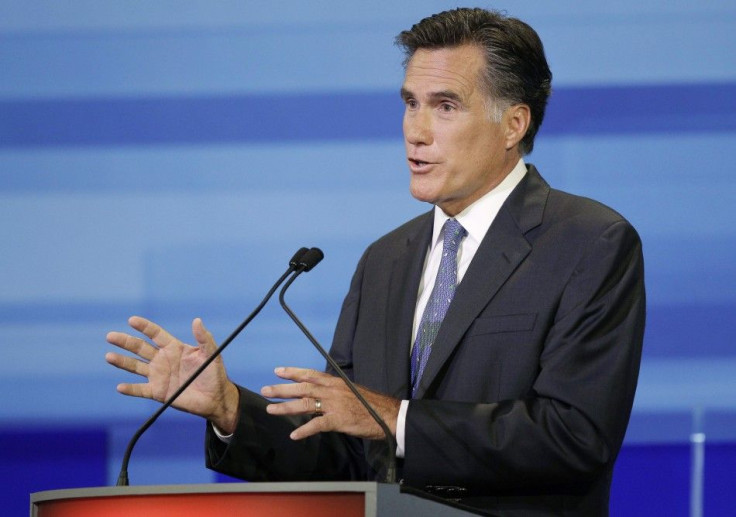Romney Realizes He Has Competition, But is it Too Late?
ANALYSIS

Almost from the start, former Massachusetts Gov. Mitt Romney has enjoyed a relatively comfortable lead over his competitors in the GOP presidential race, but it was only a matter of time (I, at least, was waiting) until someone usurped his title as No. 1. The time has finally come -- and it has come in the form of Texas Gov. Rick Perry.
I don't think it was until after Perry, the governor from Texas, clad in his trusty boots named Liberty and Freedom, came galloping alongside him and then in front of him that Romney realized he was not already the nominee, that a race indeed was still going on, and there was, indubitably, still many a mile to go.
In an Aug. 31 poll released by Quinnipiac University, the numbers show Republicans prefer Perry by a 24 percent to 18 percent margin. As a result of his newfound struggle in the polls, Romney has shifted gears and is now deliberately courting Republican primary voters instead of maintaining his no-frills campaign.
All summer, Romney has been running a low-key campaign built on his experience in the private sector and upselling his expertise as a business executive who can build jobs and jump-start the U.S. economy. Moreover, he has leveled his attacks to only the president, leaving the childish bickering to his competition.
Now he is taking a different course. (And, one can presume and look forward to, a showdown with Perry.)
Romney Shifts Strategy: Will Now Court Tea Party
He will also appear with the Tea Party Express in Manchester, N.H., on Labor Day, and then skedaddle to South Carolina to attend a candidates' forum that he had, just days ago, turned up his nose.
We're pleased we were able to arrange our schedule -- emphasis mine -- so that Gov. Romney can attend Labor Day events in both New Hampshire and South Carolina, campaign spokeswoman Andrea Saul said Tuesday.
While Romney thinks he is line with the Tea Party -- telling the Daily Caller in June, They want to see smaller government. So do I. -- the Tea Party doesn't seem to agree. Amy Kremer, chair of the Tea Party Express, has made it patently clear that Romney's Massachusetts health care law, which many perceive to be the foundation for President Barack Obama's 2010 U.S. Health Care Reform Act, is a deal-breaker for members of her group.
So, Perry has the backing of the Tea Partiers who, despite their dive in popularity, still maintain a semblance of influence within the party; Romney does not. In fact, FreedomWorks, a conservative group with strong ties to the Tea Party movement, plans to protest Romney's appearance at the Tea Party Express function.
Mitt Romney and Orrin Hatch have actively and consistently supported expanding the role of government through government-run health care, Wall Street bailouts, and spending hikes, FreedomWorks President Matt Kibbe said. Those positions are unacceptable to the Tea Party principles of lower taxes, less government and more freedom.
So there you have it. What I consider a small amount of proof that Romney hasn't really been what the Right wants. Rather, he was merely keeping the frontrunner seat warm until the right fit came along. He has always been the third-string quarterback
But that aside, Romney also lacks what Simon Cowell calls the it factor, the exponent that can makes someone a star or not. The it factor test holds true in the political realm, too, and Romney doesn't have it.
He's too namby-pamby to make a stand and say, Yes, that choice is mine, I own it. He lacks the leadership quality to make a formidable president. You can make the good-governor argument, I suppose, but he's also missing the necessary gravitas required of the Commander-in-Chief of 50 states -- not just one.
It may be superficial, but of the many misnomers the Left has out there, the one that labels Romney as bland rings true. And the president of the United States should be anything but.
© Copyright IBTimes 2024. All rights reserved.











